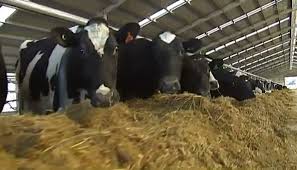
Senate Bill 380 would re-establish the North Carolina Milk Commission and empower it to set minimum and maximum prices. It got a sympathetic hearing from the House Agriculture committee on Wednesday, but concerns about allowing price controls in a complex industry kept the bill from getting a supportive vote.
Instead, the committee punted the measure to the House Judiciary committee, sending it there on a unanimous vote without an up-or-down recommendation.
Dairy farmers and legislators from the state’s two biggest milk-producing counties – Iredell and Randolph – painted a dire picture. Low prices on a gallon of milk bring people to the grocery store, and some stores sell it at or close to cost, said Rep. Jeffrey McNeely, R-Iredell.
That, plus out-of-state competition from farms with more than 100,000 cows, has pushed family farms to the brink, McNeely said. In 1974, the state had more than 1,700 Grade A dairies, McNeely said. Now it’s 160.
“The price of milk has made its own moratorium, and it’s crushed them,” he said.
The bill would re-establish a 10-member commission able to set milk prices after a public hearing, if it determines that the absence of a price floor “has caused or is about to cause a disruption in the North Carolina milk market.” This commission would be funded by a tax: No more than 5 cents per 100 pounds of milk handled by distributors and no more than 5 cents per 100 pounds sold by producers.
The bill was fashioned, in part, on Virginia’s milk commission, sponsoring Rep. Pat Hurley, R-Randolph, said.
The North Carolina Department of Agriculture & Consumer Services doesn’t support the measure, with it’s in-house lobbyist saying Wednesday that the department isn’t sure it will help dairy farmers. Several legislators said the milk industry’s web of regulations on production, pricing and delivery make it difficult to understand its existing structure, much less the bill’s impact.
The state’s retail merchants association opposes the bill, and its lobbyist said Wednesday that it would raise consumer prices.
Hurley and McNeely said they’re willing to rework parts of the bill, and they were pushing Wednesday to keep it alive for this legislative session instead of submitting the issue to a study with no guarantee of future legislation.
“Our dairy farmers can’t wait,” Hurley said.
























